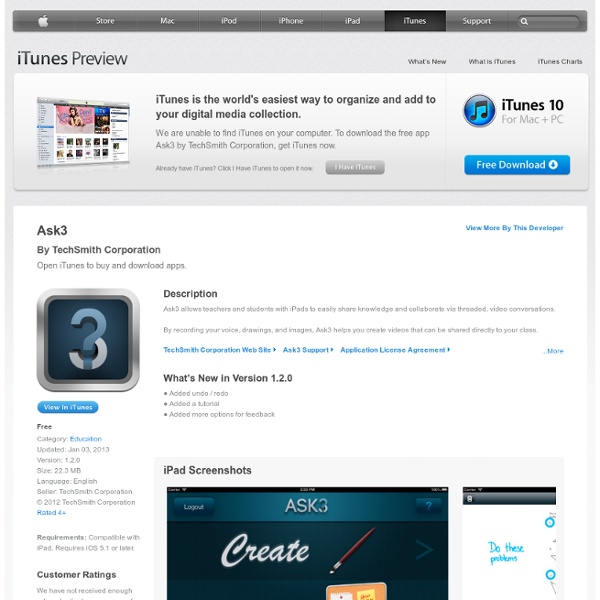



visual recording on the iPad, illustrated – Ninmah Meets World This week I’ll be giving a talk at IFVP 2010 on visual recording with the iPad. While I was preparing my notes, I discovered how easy it is to make Quicktime movies of your notes with the Brushes app, so I made a little movie. Then I got carried away narrating it and adding in other images and … well, it’s almost 13 minutes long now, and if you watch it, you can skip my talk. (Note: In the movie, AirSketch is attributed to “Grayon,” but the company’s name is actually “Qrayon.” How’d I Do That? initial sketch for my talk While making the outline, I tried four different apps (Adobe Ideas, Qrayon’s AirSketch, Brushes by Taptrix, and Autodesk SketchbookPro). Next, I transcribed my notes using Brushes, which automatically records the strokes as you go. While watching the animation play out in Brushes, I recorded the narration using Audacity. Here’s the final image from Brushes: Visual Recording on the iPad (in Brushes)
Student Clicker - Socrative for iPhone, iPad, and iPod touch on the iTunes App Store Teacher Clicker - Socrative Air Sketch: Wireless Whiteboard for the iPad Features: View more Air Sketch Tips and Tricks, and also check out the FAQs. People Love Air Sketch We work hard to build 5-star Apps, and are very grateful for all our 5 star reviews. ★★★★★ Single Most Useful iPad App. ★★★★★ Perfect for the Modern Professor. ★★★★★ Wow. Read more reviews in iTunes. When your Audience isn't Live: If you like Air Sketch, you'll love the All New Vittle, which turns your iPad into a recordable video whiteboard.
Follett Destiny for iPhone, iPad, and iPod touch on the iTunes App Store Metryx | Track | Analyze | Differentiate Hey, We’ve Launched an iPad App – Adobe Ideas (Adobe Featured Blogs) Holy Digital Publishing Platform Wars Batman, Adobe has launched a cool new application for iPad!!! Yes it’s true, a brand new piece of software — Adobe Ideas — is now available on the Apple iTunes App store: Adobe Ideas is a digital sketchbook, letting you capture and explore ideas anywhere you go — an ideal companion for the professional design applications from Adobe, such as Illustrator or Photoshop. The redoubtable John Nack is taking your feedback, from the open-minded and the zealot alike, over on his blog: * I only know about pashmina because my wife is in the fashion biz. View other entries tagged: , Adobe, Digital Publishing, illustrator, iPad, iTunes, John Nack, Pashmina, Photoshop, Starbucks
Nearpod Snapguide: leuke doe-het-zelf app op iPad donderdag, 20 december 2012 (14:45) | Bart Breij Hoe maak je een gepocheerd ei? Hoe laat ik een klimpant groeien in de tuin? Hoe plak ik een fietsband? Zo bevat het introscherm van een gids meteen een schermvullende foto, met een titel erboven die je met een tik weghaalt. Het hoofdmenu is te bereiken met de pijl linksboven in een gids en het Snapguide-titelmenu als je op een overzichtspagina bent. Zelf een gids maken is onveranderd wel een karweitje in Snapguide. Downloaden: Snapguide (gratis, universeel, iOS 5.0+)
Explain Everything ™